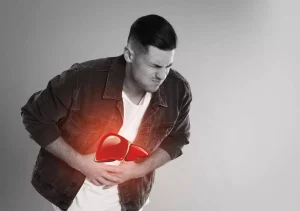
We want to give recovering addicts the tools to return to the outside world completely substance-free and successful. SOBER meditation is a type of mindfulness practice that is perfect for anyone going through addiction treatment. It not only reminds you of your goal, it helps you remember the meditation steps as well. By living in the moment and not avoiding what’s happening in the present, you may be less likely to abuse drugs and alcohol. Pre-pandemic studies indicated that more than 85% of individuals relapse and return to drug use within one year of treatment. With the convergence of a pandemic and an addiction epidemic, those attempting to recover from substance use disorders (SUDS) are more vulnerable to relapse than ever before.
- While you may not feel these benefits immediately as you adjust to becoming more deliberate and self-reflective with how you think and feel, the long-term merits of mindfulness and meditation are sure to be instrumental in your recovery.
- EquiSync uses sound to deepen the meditative state no matter your chosen technique.
- Meditation techniques can be implemented in any type of addiction treatment program.
- Many alcohol and drug addiction treatment programs have included meditation in their overall treatment plan.
Can mindfulness really help prevent relapse?

No one would expect meditation to be an important part of recovery but learning the breathing and thought techniques of meditation can help you slow the world down and gain perspective during difficult times. Now, just about every treatment center in the country uses some form of meditation to help recovering alcoholics and addicts achieve personal growth and inner peace. Meditation therapy can assist someone with substance abuse cravings and withdrawal symptoms. It’s common for people to use drugs or alcohol to manage their triggers or PTSD symptoms. Untreated PTSD is a major contributing factor to SUD rates among our nation’s first responders.
Stay on top of latest health news from Harvard Medical School.
Meditation can also help you deal with protracted withdrawal, which involves symptoms like anxiety, difficulty making decisions and strong drug cravings that last for several months after drug use is stopped. SAMHSA recommends that people find ways to exercise their minds and bodies to prevent themselves from relapsing during the protracted withdrawal phase. All meditation involves being mindful (or present in the moment), but mindfulness addiction meditation kundalini meditation emphasizes this. In mindfulness meditation, the person works to build his or her awareness of the current situation. In guided meditation, you will work with a trained meditation or mental health professional. According to the National Center for Complementary and Integrative Health, meditation is a mind-body activity intended to promote calm and relaxation and help people cope with illnesses and improve well-being.
Preventing relapse
Although the authors did not include a formal search for “gray literature” related to MBI treatment of substance misuse, they noted that funnel plots and Egger’s test analyses suggested that their findings were not likely due to publication bias. Alcoholism and drug addiction are complex conditions that plague millions of people. For many recovering addicts and alcoholics, that plan typically includes talk therapy, support groups, and, if warranted, medication.
How do trees and green spaces enhance our health?
The individual may then evoke the state of mindfulness through focused attention or open monitoring mindfulness practice and choose to respond with a more adaptive coping strategy. Over time, the individual may develop the motivation to reduce substance use or abstain entirely, at which point mindfulness may be useful for preventing relapse. Even though detoxification, behavioral counseling, and peer support groups remain the primary means of treating addiction, mindfulness can also help individuals overcome addiction challenges. In addition to helping you live intentionally, mindfulness can help bring greater awareness and happiness to your life.
- In the past, when you repeatedly engaged in specific thoughts and behaviors that propelled your addiction, you unknowingly shaped your brain in ways that worked against you and prevented you from being mindful.
- Research shows that having a strong support system and feeling like you belong are two of the best predictors of a successful recovery.
- They can also have a significant effect on your mind throughout recovery, as they both teach you to be deliberate and pay attention to what triggers your cravings.
While meditation takes place in sessions you can practice mindfulness throughout the day every time you smell autumn leaves or notice the intricate detail of your own fingerprints. When you can learn to slow things down with mediation then appreciate your world with mindfulness, you’ll have a much higher chance at lifelong sobriety. Another element of meditation for substance abuse treatment is the release of dopamine or “feel good chemicals” sought out by those struggling with addiction. A study by Molecular Psychiatry indicated the low levels of dopamine once someone abusing drugs experience when “crashing,” contrasting it with a John F. Kennedy study. The John F. Kennedy study revealed a 65% boost in the minds of participants during meditation. Any co-occurring or undiscovered motivations for substance abuse, such as filling a void, thinking the worst-case scenario, or feeling anxious can improve with meditation.
BONUS! Sign up now and get a FREE copy of theBest Diets for Cognitive Fitness
- Research is needed to test the comparative effectiveness of brief versus extended MBIs and the relative cost-effectiveness of these models.
- In response, the American Medical Association is urging policymakers’ to increase access to evidence-based care for substance use disorder (SUD).
- With regard to implementation science, many studies to date have measured the effectiveness of brief MBIs due to their relative ease of dissemination.
- Fortunately, practicing mindfulness and meditation techniques doesn’t require special equipment or training.
While sitting still is often a part of mindfulness meditation when you first start, once you get the hang of it, you can take your practice anywhere, including on a walk outside. By practicing stillness, you free yourself up to discover truths about yourself. It can also open you up to seeing all the potential you have and that can be an incredibly positive feeling when going through addiction treatment and your recovery journey. By putting yourself in the moment and bringing a sense of calm and peace to your life, you can make less reactive decisions and stick to your long-term recovery plan. This is indeed a challenge, as MBIs with demonstrated efficacy in Stage II trials may fail to show effectiveness in Stage III and IV trials when delivered by community clinicians. Yet, work now needs to be done to understand the feasibility, acceptability, and impact of delivering MBIs in addiction treatment settings.

She states, “substance abusers will often attempt to consume the same amount they were accustomed to consuming during the height of their abuse which could result in overdose and even death.” More than a decade of research has demonstrated the promise of MBIs for intervening in SUDs and preventing relapse. Although rigorous trials have been conducted, https://ecosoberhouse.com/ a number of these studies have methodological limitations that limit the ability to conclusively affirm the effectiveness of mindfulness intervention with SUDs and prevention of relapse. For instance, Sancho et al’s16 recent systematic review raises the concern that MBI intervention effects do not seem to persist at follow-up assessment.

Mindfulness Can Help Increase Your Emotional Intelligence
